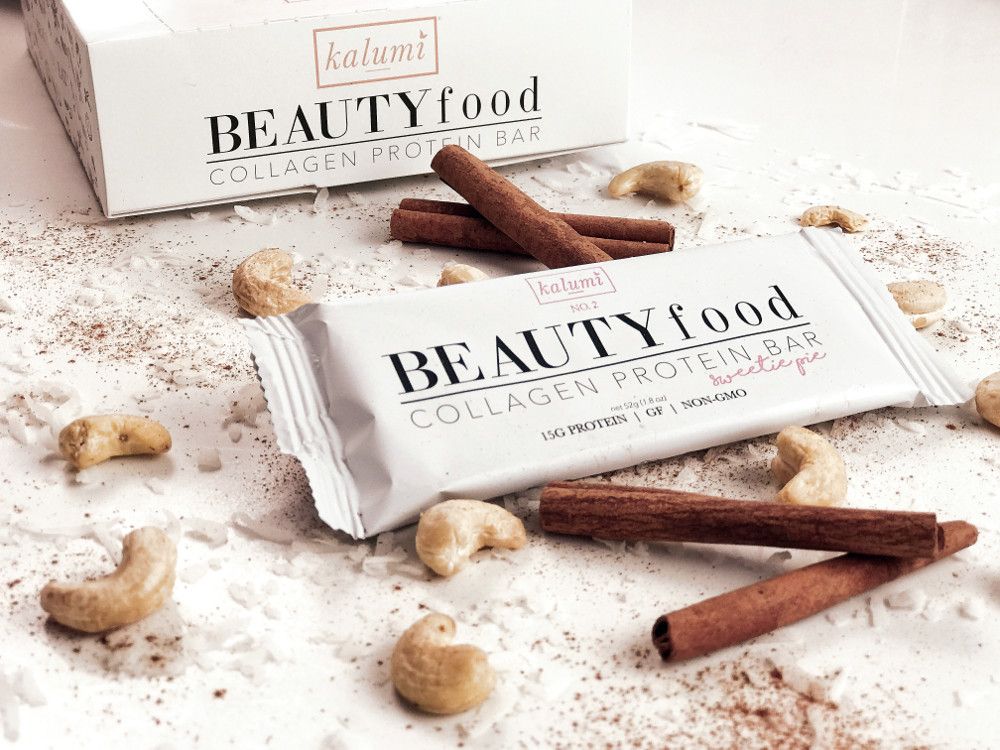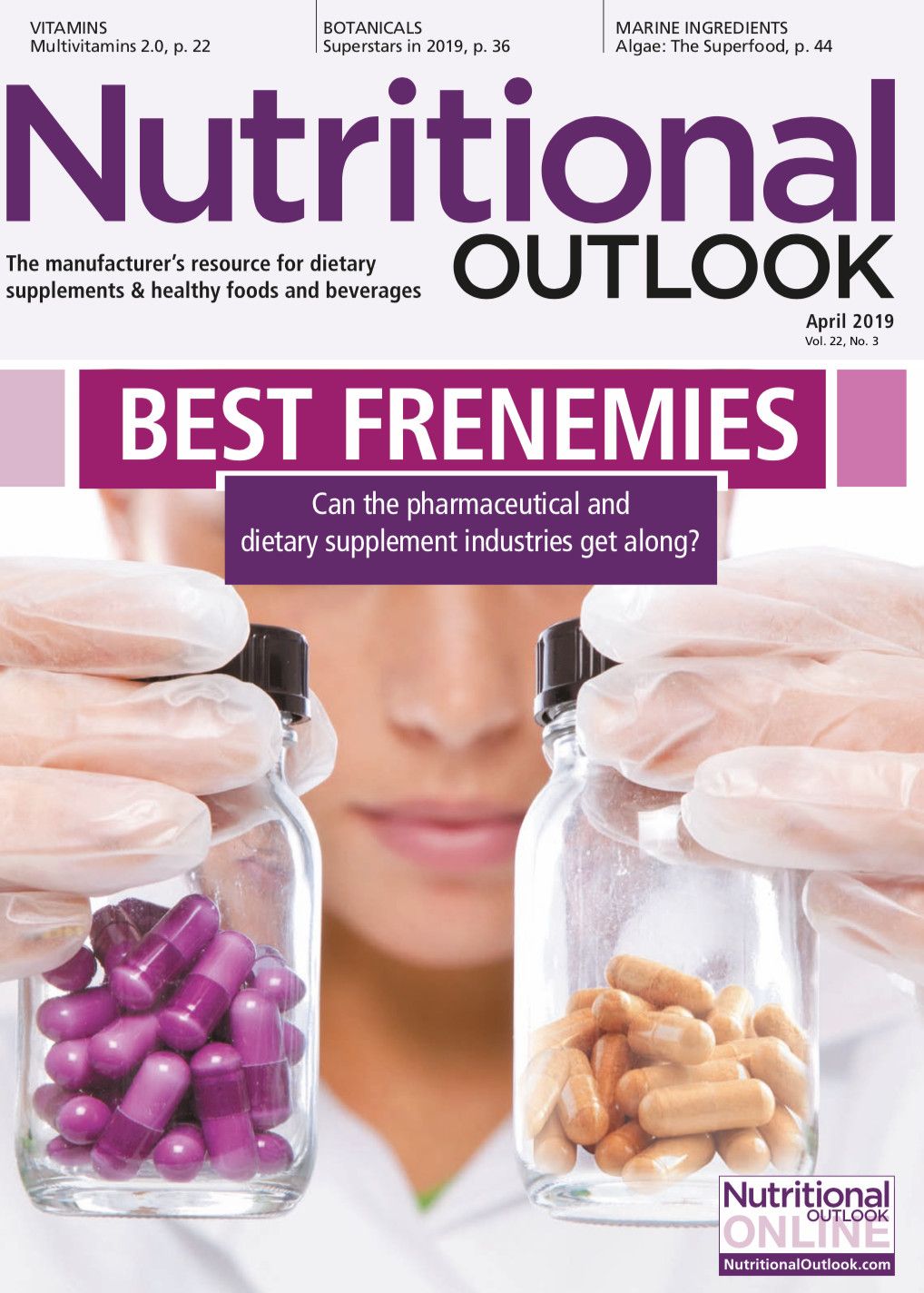Beauty and the Bar: Beauty food and drinks attract more fans
According to Innova Market Insights, the number of foods and beverages positioned toward skin health saw 15% average annual growth globally between 2014 and 2018.
Photo from Kalumi

Functional foods and beverages are a popular delivery format for nutricosmetic ingredients these days. According to Innova Market Insights, the number of foods and beverages positioned toward skin health has seen 15% average annual growth globally between 2014 and 2018. During this same period of time, new food and beverage product launches tracked for skin health increased by 12%.
Collagen, to use a popular nutricosmetic example, is a highly versatile ingredient that is easy to incorporate in foods and beverages. It’s also very recognizable, having been a staple of the dietary supplement industry. “Collagen is a desirable ingredient,” says Jayla Harnwell, co-founder of Kalumi, a functional bar company. “People are starting to realize collagen is playing a big role in the look of hair, skin, nails, and even other benefits like feeling full longer.”
Kalumi manufactures “Beauty Bars” that showcase collagen for skin health, as well as a high fiber content from yacon syrup to promote satiety and support weight management. Reflecting the marketing style of the cosmetic and nutricosmetic industry, Kalumi is a lifestyle brand that carries an aspirational message. The products feature branding that invokes sophistication and femininity, targeting a very specific consumer. In fact, the company’s founders, young female professionals, really reflect the target consumer.
“We were both dealing with a number of health issues caused by the lack of healthy food available to us while constantly traveling and working. Jayla’s mom, who is a naturopath, recommended we both take collagen as a supplement to help replenish protein levels and ultimately improve the quality of our hair, skin, and nails,” says Chrissy Blair, co-founder of Kalumi. “After seeing and feeling the difference that collagen made to our overall health and appearance, we were hooked. We would carry white powder with us in Ziploc bags and try to find beverages we could mix it with, but it was so inconvenient. This was what inspired Kalumi.”
The desire for convenient nutrition is a big driver for functional food and beverage products. These products are easily incorporated in one’s busy routine and take the guesswork out of nutrition. “We wanted to create a well-rounded, nutrient-rich, and satiating snack/meal replacement for busy people to keep them looking and feeling their best,” says Blair. “Not only do our bars contain 12 g of marine collagen, they also contain 15 g of protein and less than 6 g sugar from organic yacon syrup, which is a low-GI prebiotic fiber.”
Beauty brands like Kalumi also focus on creating a community around their products through direct-to-consumer sales and social media. Kalumi sells direct to consumers, as well as to retailers, but offers a subscription service that allows customers to buy more products at a discount. “We decided to focus on direct-to-consumer through our website so we can keep a close relationship with our customers, which is important to us, especially at this early stage. About 30% of our customers are subscribers,” said Blair. “In terms of retail, we have partnered with select, like-minded retail accounts to help build brand awareness and to be available where new potential customers are shopping. The reason we went with this particular business model is to have more control over maintaining a close relationship with our customers so we can educate them on the many benefits of our product and really enhance brand experience.”
That means that at least 30% of Kalumi’s customers are consistently buying its products, and believe in the products. With social media platforms like Instagram, this customer relationship becomes even more interactive and personal. “Social media is a great tool to educate and engage with our community,” says Blair. “It gives us the opportunity to highlight our brand values and get feedback on our products so we can always continue to improve and adapt. It’s also a great way to introduce people to our products and direct people to the site to learn more.”
While collagen is the talk of the town, other functional food ingredients that target beauty are sure to break into the category. For example, according to Innova Market Insights, food and beverages targeting skin health that contain turmeric have seen a 57% average annual growth between 2014 and 2018. B-vitamins are another functional beauty ingredient of interest. According to Innova, between 2014 and 2018, skin health–targeting food and beverages containing vitamin B3 and niacin, and vitamin B7 and biotin, experienced 9% and 25% average annual growth, respectively. Opportunities will only grow for nutricosmetic ingredients as marketers continue to harness the convenience and appeal of beauty foods.

FDA revokes authorization to use Red No. 3 as a color additive in food or drugs
January 15th 2025FDA contends that the color additive is safe for humans but is legally obligated by the Delaney Clause of the FD&C act to revoke authorization as research shows the Red No. 3 induces cancer in rats.